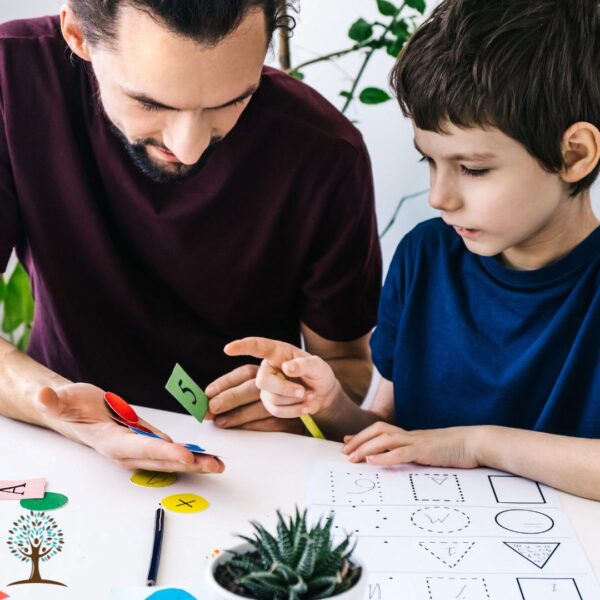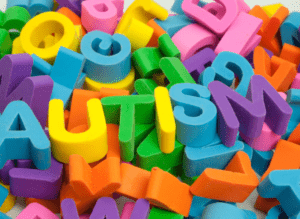
Parenting a Child with Autism : A Helpful Guide
Parenting a child on the autism spectrum can feel like you’re trying to piece together a puzzle with no picture on the box. Parenting can be like that in general, but when you start noticing behaviors in your child that feel different, confusing, or hard to explain, that puzzle can feel even more overwhelming. Every parent has struggled with self doubts and uncertainties on how to move forward in parenting. You’re not alone. Many parents have been right where you are.
Together, we’ll look at what autism is, how it may appear in children, and gentle ways you can support your child—and yourself—along the way.
Parenting a child with Autism is Different
Autism, or Autism Spectrum Disorder (ASD), is a neurodevelopmental difference in how a person communicates, learns, and experiences the world. It’s called a “spectrum” because autism is very different from person to person. Some kids may be highly verbal and academically advanced, while others may have significant communication challenges. The common thread is that their brain processes information in a way that can make social interaction, flexibility, and sensory experiences more challenging. Children on the autism spectrum will need some adjusted parenting approaches given their unique neurodevelopmental needs.
Key Areas Where Children with Autism May Need Support
Every child is unique, but some common areas where kids with autism benefit from extra guidance include:
- Communication & Language – Children with autism may communicate in unique ways. Some might speak later than their peers, use fewer words, or rely on gestures, sounds, or pictures instead of speech. Others may have strong vocabularies but find back-and-forth conversation, tone of voice, or body language harder to understand. Their communication often looks different, but it’s still meaningful—and with support, it can grow and flourish.
- Social Skills – Relationships can be the hardest piece to for a child on the spectrum to manage. Some simple skills such as how to start conversations, share space with peers, or navigate friendships.
- Behavior & Emotional Regulation – Children with autism experience the same range of emotions as their peers, but they may express them in different ways. Support is often needed to help them recognize their feelings and learn healthy ways to share them. Planned strategies for handling transitions, along with reducing overwhelming environmental stimuli, can make a big difference in preventing meltdowns and promoting emotional balance.
- Sensory Support – Due to the ways the brain is wired, offering sensory support can be a key helper in parenting a child who lives with autism. Occupational therapy is another key resource for sensory processing, and can help teach strategies like weighted blankets or tactile resources to help give the brain the input it needs. Other lifestyle adjustments such as noise-canceling headphones, and sensory-friendly environments are often overlooked options that should be a part of a parents tool kit for parenting a child on the spectrum.
- Daily Living Skills – Children with autism often process information, sensory input, and social expectations differently, which can make everyday tasks harder. Skills like hygiene, cooking, organizing, or handling money may not come naturally and need to be taught step by step. Repetition and reinforcement over the long run will help them to be most successful. This is an area where you are making progress even if they do not seem to be grasping it yet. Give it time!

Building Your Child’s Support Team
You are not alone parenting your child with this neurodevelopmental difference. You also should feel comfortable to surround yourself with a team of professionals that can also Think of your child’s care as a team effort, where each specialist brings a different set of tools to help your child grow. Here are some professionals who may become valuable members of your support network:
- Pediatrician or Developmental Pediatrician – Often the first step for evaluation and referrals. A developmental pediatrician specializes in diagnosing and managing developmental differences, including autism.
- Speech-Language Pathologist (SLP) – Supports children with delays in speech, language, or social communication. They can also help introduce alternative communication methods if verbal speech is difficult.
- Occupational Therapist (OT) – Helps with fine motor skills (like handwriting, using utensils), daily living skills (dressing, brushing teeth), and sensory processing challenges.
- Behavioral Therapist (often ABA provider) – Works on understanding behaviors and teaching skills in ways that encourage independence, flexibility, and coping strategies.
- Child Psychologist or Counselor – Provides support for emotional regulation, anxiety, or social skills, and helps parents understand their child’s behaviors.
- Special Education Teachers & School Support Staff – Play a big role in creating and following your child’s Individualized Education Program (IEP), ensuring your child has accommodations to thrive academically and socially.
Let me guess you’re thinking “woah, that’s a lot of people”. Remember, you don’t need all of these specialists at once.
The right mix depends on your child’s unique strengths and challenges.
Last, but most importantly…You
If you’re so focused on your child that your own needs often end up last on the list, we need to change that! The truth is parenting a child with autism can be deeply rewarding, and also emotionally draining. Taking care of yourself isn’t selfish; it’s necessary.
- Find your people. Join parent support groups (online or in person) where you can share stories and resources. There’s comfort in knowing you’re not alone.
- Take breaks when you can. Even short moments, like stepping outside for a breath of fresh air help recharge your nervous system.
- Set realistic expectations. Some days will be messy, and that’s okay. Celebrate progress, not perfection.
- Seek your own support. Therapy, coaching, or counseling can give you space to process the ups and downs of parenting.
Remember, your child benefits most when you feel grounded and supported.
Parenting a child with autism isn’t about striving for perfection; it’s about showing up with patience, consistency, and compassion, even on the hard days. We’ve all heard the phrase “Hurt people hurt people”, we do ourselves and others a disservice when we don’t adhere to our own needs. Making space to rest, recharge, and care for your own emotional well-being is not only vital for you, but it also strengthens your ability to show up as the steady, grounded parent your child needs.
If you’ve made it this far in the article.. Could it be because this topic resonates with you? You are not alone. Consider reaching out to a professional just to get more clarity.
And in the meantime, remind yourself: you don’t have to have it all figured out today.
You’re doing better than you think.
Related Posts
The Benefits of Play for your Child
Building Strong Emotional Bonds Through Play Playing with your children is...
Nurturing Individual Needs: A Guide for Couples
Nurturing Mental Health in Relationships: A Guide for Couples Does it...
A Walkthrough on Childhood Depression
Childhood Depression, What parents need to know If you are here, you...
How to help your student overcome test anxiety
For most students, the end of the school year is exciting because it means that...





